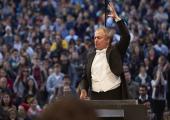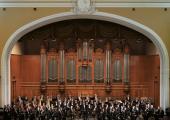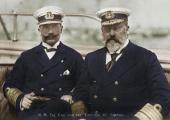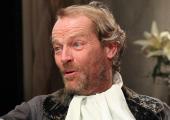Rodin, Eifman Ballet, London Coliseum
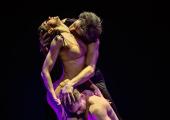
A ballet to offend lovers, geniuses, muses, sculptors, mental patients and women everywhere
Before Boris Eifman’s second visit to London this week, ballet lovers who missed the divisive Russian dancemaker last time round will have been weighing up the merits of a punt on a ticket. If they were basing their calculations on reviews, I imagine their mental reasoning went as follows. Against: Eifman’s ballets send many English-language dance critics into tail-spinning, virtuosic displays of vitriol (based on genuine dislike: Eifman makes one colleague “want to stand on her chair and howl.”) For: other critics like him; Russian audiences apparently love him.


